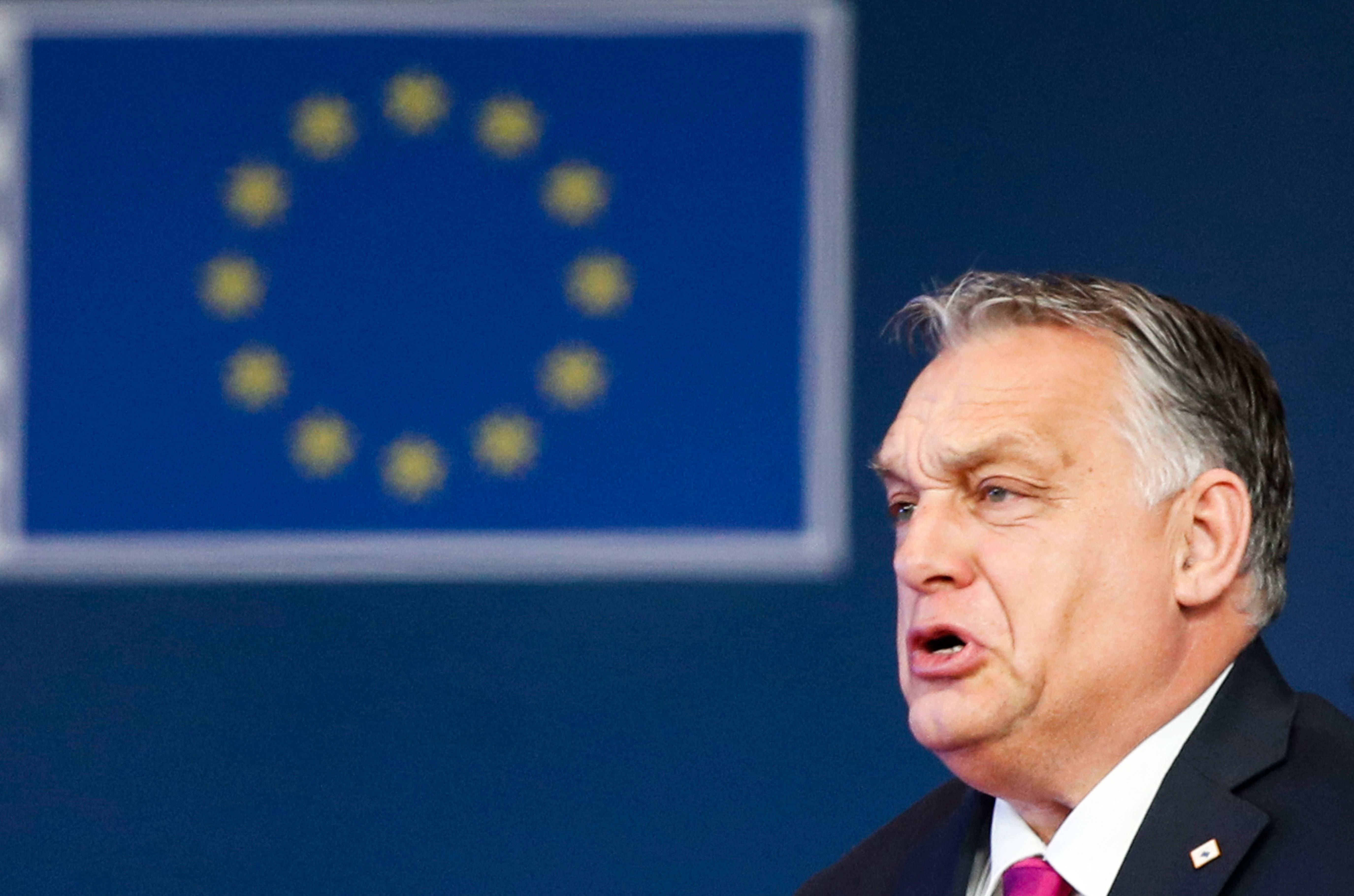An election too close to call as Hungary approaches its Orban crossroads
Hungary has a big choice to make in April: four more years of Viktor Orban or a brand new government, reports Amanda Coakley


On 16 June 1989, a scruffy 26-year-old man nobody had heard of sparked hope across communist Hungary. Delivering the final speech at a memorial service for the heroes of the 1956 uprising against the USSR, Viktor Orban demanded the withdrawal of Soviet troops and a new era for his country.
“If we trust our own strength, then we will be able to put an end to the communist dictatorship,” he told the crowd of over 250,000 people. “If we are determined enough, then we can compel the ruling party to face free elections.”
Thirty-three years later thousands of Hungarians are once again calling for free elections, only this time the request isn’t being made against some foreign power but against Orban himself, now the leader of the ruling Fidesz party and seeking a fourth consecutive term in office this spring. Having first come to office in 1998 and returning in 2010 with a two-thirds “supermajority” in parliament, Orban has quickly abandoned his liberal principles in the pursuit of power.
Hungary under Fidesz has been labelled a “mafia state” due to widespread corruption and the centralisation of power within the prime minister’s office. Orban himself has preferred the term “Christian democracy” but his discriminatory laws and abandonment of pluralism is a far cry from the Christian democratic tradition that formed the foundations of the European Union.
Hungary’s elections in 2014 and 2018 came under criticism from election monitors who said restrictive campaign regulations, biased media coverage and opaque campaign financing tipped the vote in favour of Fidesz.
In December 2011 a new electoral law reduced the number of MPs from 386 to 199 and the number of electoral constituencies from 176 to 106. The two-round voting system was also scrapped. All of these developments have benefitted Fidesz and impeded the opposition.
Until Hungary’s six-party opposition united in December 2020 they had failed to present any real challenge to Orban’s power. After two rounds of opposition primaries last autumn, a first for the central European nation, Peter Marki-Zay, a small-town mayor, was selected to be the sole challenger to the prime minister this spring.
Although the opposition campaign has lost momentum since the primaries due to squabbling over strategy, there is still a chance of victory when the country goes to the polls on 3 April.
“The last few months have been bumpy due to internal conflicts within the opposition … but due to the economic situation, such as high inflation, and pandemic mismanagement, I think the opposition is doing OK,” Daniel Rona, director of 21 Research Centre, told The Independent. “If they address the problems of everyday people then they will be able to cut through [Fidesz’s messaging] and get votes.”
According to polls the united opposition is neck and neck with Fidesz, but the government’s sophisticated campaign machine is just starting to kick into gear. Sweeteners like a 13th-month pension will be paid out in February; since 1 January Hungarians under the age of 25 are exempt from personal income tax; a nationalist “peace march” will be held in March with thousands expected to attend; and just weeks before the election Hungary will be the first European country to host the American Conservative Political Action Conference (CPAC).
Furthermore, a referendum on Fidesz’s discriminatory “child protection” law, which includes a ban on showing content of homosexuality or gender reassignment to minors, is likely to be held on the same day as the election after the country’s Constitutional Court rejected petitions seeking its annulment.
After weaponising migration on Hungary’s borders, the ruling party is now attacking the LGTB+ community. The so-called “child protection” law has triggered some pushback from Brussels, which launched infringement procedures against Hungary over the move, but it has still had an impact on Hungarian people.
In late December the government carried out a two-week investigation into whether beloved Disney film The Lion King questioned traditional gender roles. In the end the film was saved due to insufficient evidence, but had it been found to challenge the government’s narrow interpretation of gender, Simba, Timon and Pumbaa would have been erased from shops, schools and online.
“It’s sad to see how the very aggressive campaign against migrants and refugees in 2015 was perceived by everybody in Hungary as a campaign targeting one minority and they didn’t see that the playbook could easily be adapted to another minority,” Marta Pardavi, co-chair of the Hungarian Helsinki Committee, told The Independent.
“One of the few positive cases [however] where we have seen increasing public acceptance and progress on human rights issues is concerning the LGTBQ+ community and their issues, but of course many LGTBQ+ activists see this as fragile progress.”
Traditionally, taking on the government’s discriminatory policies is the opposition’s strong suit but Mayor Marki-Zay has been eager to avoid these issues. A devout Catholic with seven children, he told The Independent at a recent press briefing: “The issue of equal marriage never comes up in Catholic circles, we never even consider that the Church should allow same sex marriage … but at the same time many of my friends understand my more liberal approach to the issue but of course they are sensitive … I support same sex marriage in the secular state but not in the Church.”

He has also kept the issue of migration at arm’s length choosing to focus his speeches on the economy and corruption. He told The Independent he would not remove any of Hungary’s border fences and reiterated his desire for “strong protection of EU borders and strong screening”. Although his centre-right politics will appeal to some Fidesz and undecided voters, it is reported to have already caused rifts within the coalition.
The year will be a turning point for Hungary’s democracy. Should Viktor Orban secure a fourth consecutive term and maintain Fidesz’s “supermajority” in parliament, the country’s constitution will continue to be eroded and its relationship with Brussels pushed to the edge. Should the opposition make history and win, the task will be functioning in a state where all key posts have been filled with people loyal to the “mafia state”.






Join our commenting forum
Join thought-provoking conversations, follow other Independent readers and see their replies
Comments